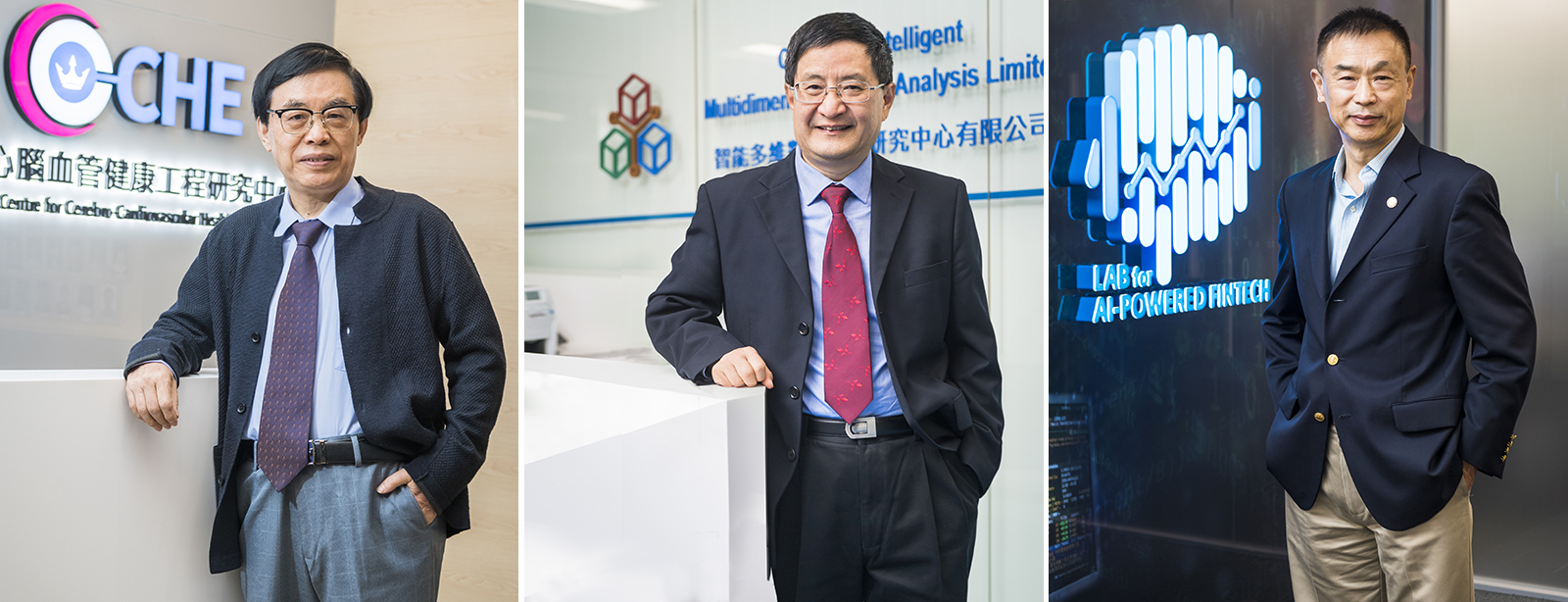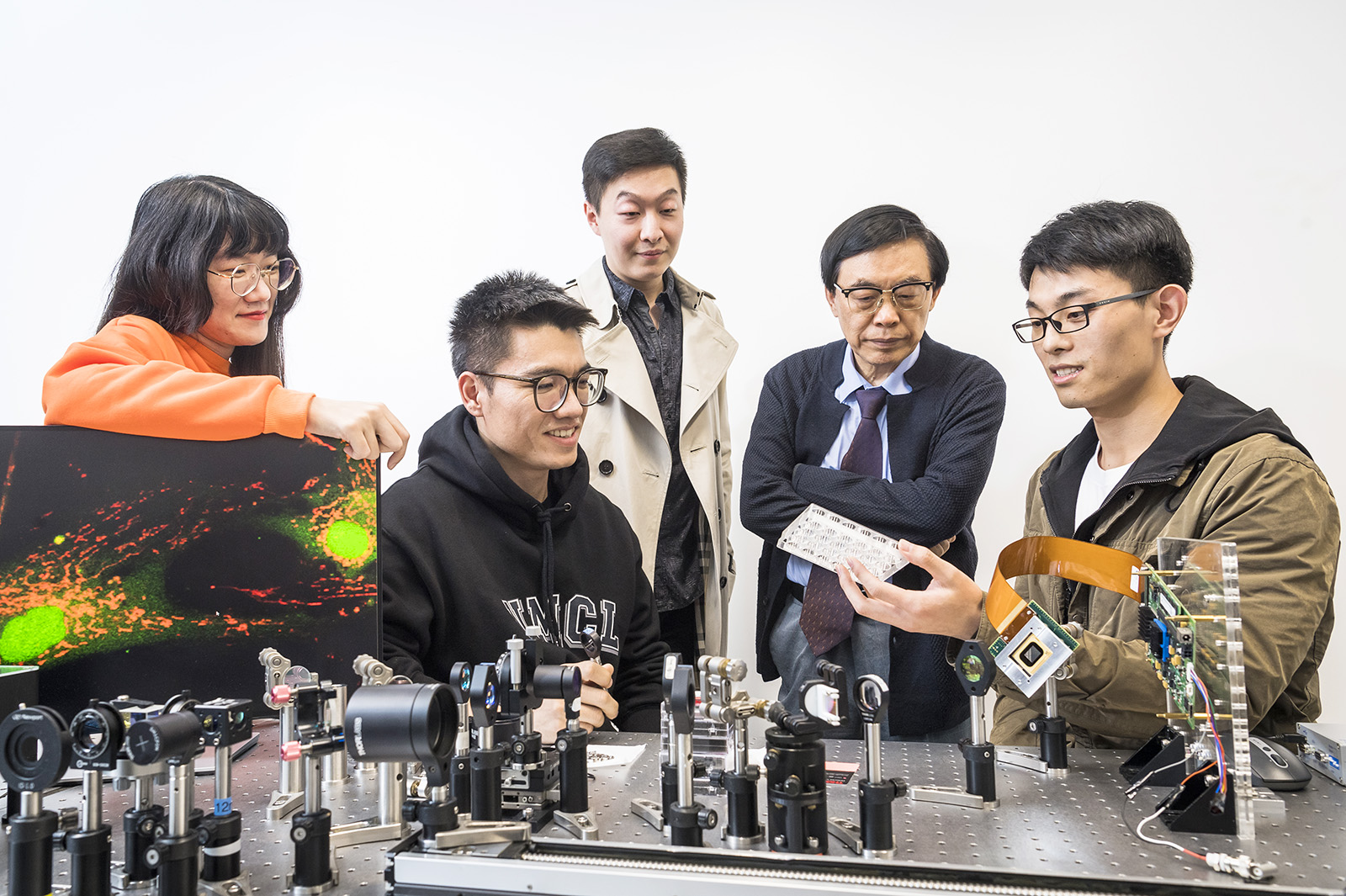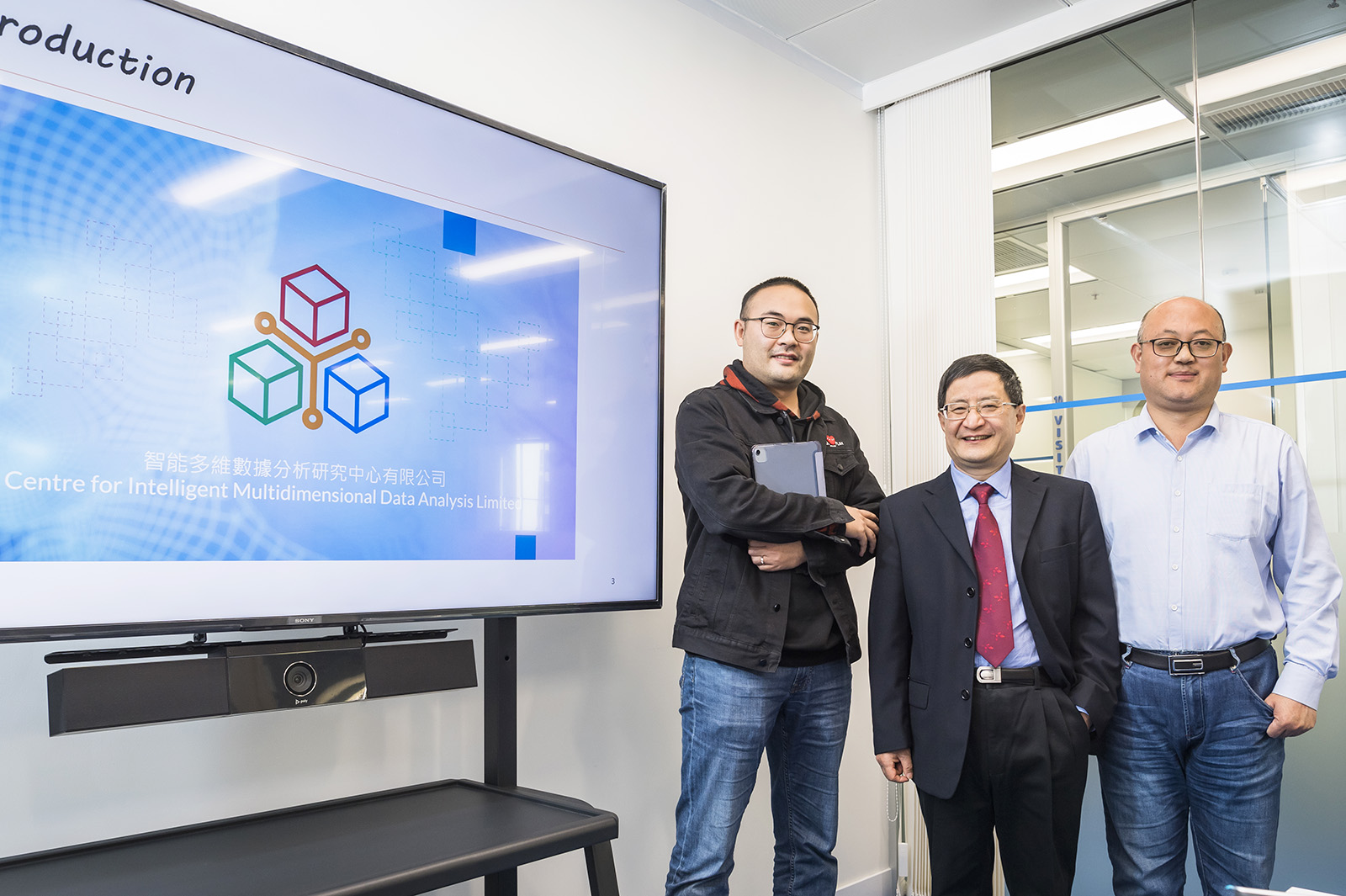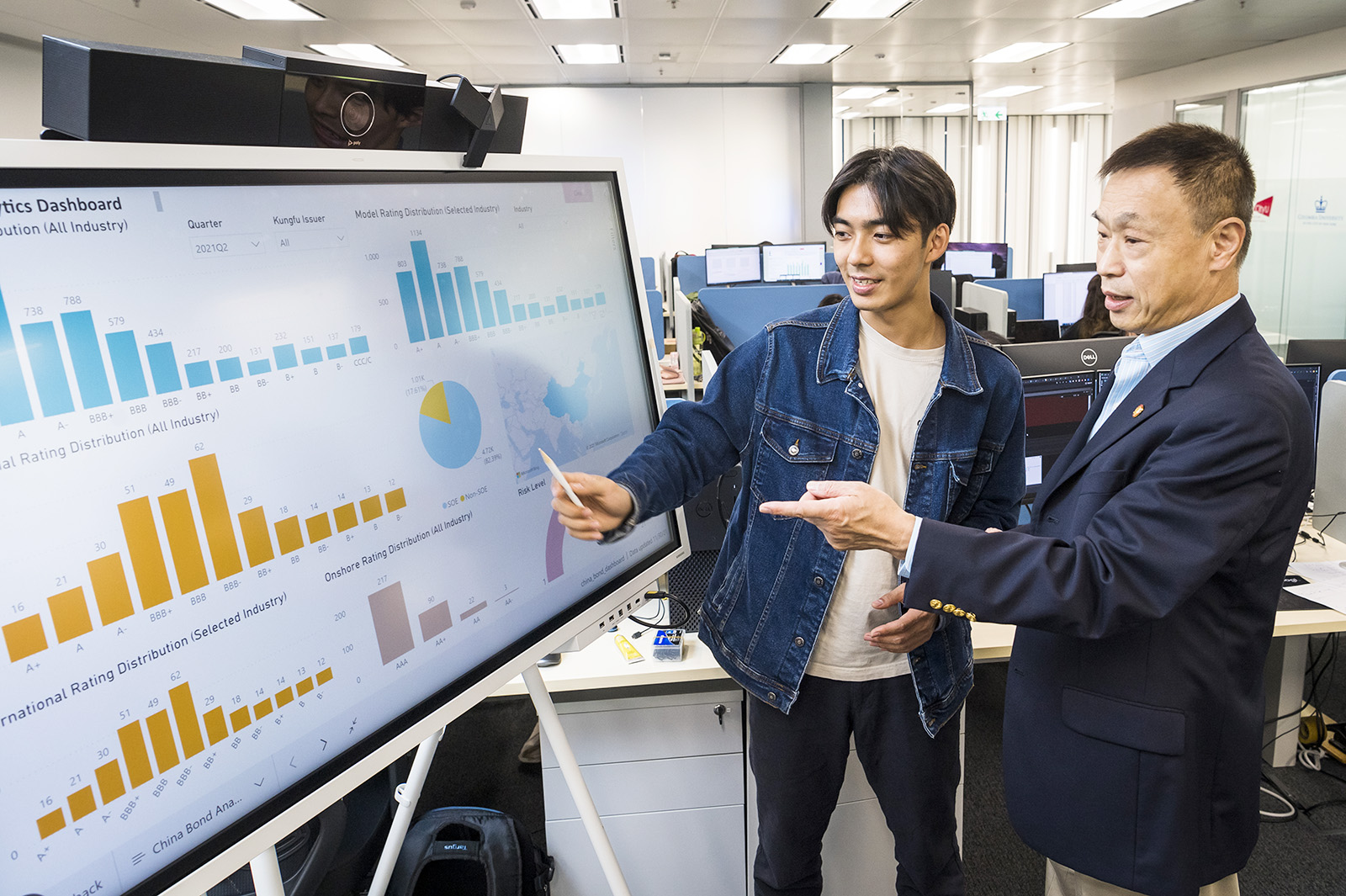CityU's world-class research capacity leads InnoHK centres in health engineering, data analysis and AI

Three world-class research centres have been established by City University of Hong Kong (CityU) in collaboration with renowned scholars from all around the world and research institutes under InnoHK, a vital initiative of the Hong Kong Special Administrative Region Government to develop Hong Kong as a hub for global research collaboration.
These centres include the Hong Kong Centre for Cerebro-Cardiovascular Health Engineering (COCHE) under Health@InnoHK that focuses on healthcare-related technologies; the Centre for Intelligent Multidimensional Data Analysis (CIMDA); and the Laboratory for AI-Powered Financial Technologies (AIFT) under AIR@InnoHK that focuses on AI and robotics technologies.
The areas that these centres advocate match with the strategic focus of CityU’s recent research. “CityU is the first to introduce and implement the ‘One Health’ concept in Hong Kong. We also promote Digital Society and AI. I hope that these research centres will continue to lead the development of Hong Kong as a global scientific research cooperation centre,” said President Way Kuo of CityU.

COCHE, InnoHK's only laboratory centre focusing on health engineering, involves developing intelligent, next-generation health engineering devices. These devices aim for changing the way people view and manage their health, which echoes the direction of the One Health theme embedded in the University’s strategic research.
COCHE Director Professor Zhang Yuanting says that health engineering will play a vital role in safeguarding people's health, well-being and, importantly, lives. He emphasises the importance of prediction and prevention in cardiovascular diseases (CVDs), including cerebrovascular conditions.
“To better protect ourselves, we need intelligent medical devices at home,” says Professor Zhang, also Chair Professor in Biomedical Engineering at CityU. “Ideally, the devices will get an early indication, intervention, monitoring and diagnosis before the collapse of a patient suffering from acute CVD.”
The centre is developing flexible sensing, biomedical and molecular imaging, nano-biosensing, and AI in health with the focus on innovative wearables that collect key vital signs, including but not limited to continuous blood pressure and electrocardiogram signals on an unobtrusive and real-time basis. The collected data is transmitted for further analysis and integration with other biomarkers, paving the way for the early detection and diagnosis of possible acute cerebro-cardiovascular diseases.
By integrating science and engineering and considering the known clinical correlations, COCHE is developing a technology for handy medical imaging devices that can monitor blood markers and create the needed machine learning algorithms for better predictive power. COCHE works in collaboration with the University of Oxford and the Karolinska Institutet, Sweden.

The use of cutting-edge AI is increasingly widespread, which echoes with Digital Society, another strategic research theme championed by CityU to foster the development of digital innovations. Mathematics and data analysis constitute the primary focus in CIMDA.
Director of CIMDA and Wong Chun Hong Professor of Data Engineering, Professor Yan Hong, stresses the mathematical foundation of the research laboratory, saying “in history, many technological breakthroughs have relied on fundamental theories. We investigate new mathematical models to extract and analyse the hidden information in big data.”
CIMDA casts its cutting-edge research into real-world applications in audio, image, video and biomedical data analysis, computer animation and augmented reality (AR), and parallel hardware accelerators based on field programmable gate arrays (FPGAs) and application specific integrated circuits (ASICs). Some examples that have passed rigorous tests include object tracking and classification in traffic management, sports video analysis, and facial mask detection for the crowd and public health management.
With a parallel development in complementary technologies, not only is CIMDA capable of quickly setting up cost-efficient virtual fashion shows, but it can also introduce virtual reporters, dancers and singers to the advertising and digital entertainment industries. These applications are important components for creating immersive experience in the Metaverse environment and can have the potential for massive savings and attracting many users.
The direct result of careful mathematical modelling also yields frontline research on biomolecular modelling and cancer drug resistance analysis. Such research allows the team to see the impact of dual protein targeting in cancer treatment.
All these applications with valuable real-world potential are associated with mathematical theories and data analysis, such as tensor theories, hypergraphs, and machine learning algorithms, explains Professor Yan.
“CIMDA emphasises on the application side, and there is now a plan to commercialise technologies under development here,” adds Professor Yan, who is concurrently Wong Chun Hong Professor of Data Engineering at CityU. CIMDA collaborates leading researchers from several institutions and technology companies, including the Mathematical Institute at the University of Oxford.

AI can be harnessed to play a role in the increasingly digitalised financial world as well.
Currently there are 19 projects underway at AIFT. In addition to the application of AI, the research laboratory engages in factor analysis, knowledge graph computation and federated computation, as well as data privacy, security, and ownership.
Specifically, AIFT stands at the forefront of developing analytical models concerning supply chain financing, which comes with the added benefits of better serving enterprises in their trade financing needs. SMEs that don't have the required collateral may find the analytics particularly practical.
“The analytics will focus on overseas e-commerce,” says AIFT Director Professor Yan Houmin, who aims to use the model to predict the turnover of a particular product. Thanks to these insights, financial institutions can make informed loan offers to companies with different products. Meanwhile, the analytics facilitate trade as suppliers will likely get credit for a more seamless operation.
Another area AIFT investigates is China's onshore bond market, which is much bigger than the country's off-shore bond market issued in foreign currencies. By working with data providers in this area, Professor Yan, who is also Chair Professor of Management Sciences at CityU, aims to generate a curve that can tell investors more information about participants in the market. CityU collaborates with Columbia University through this laboratory centre.
For more details about the centres:
Hong Kong Centre for Cerebro-Cardiovascular Health Engineering (COCHE): hkcoche.org
Centre for Intelligent Multidimensional Data Analysis (CIMDA): innocimda.com
Laboratory for AI-Powered Financial Technologies (AIFT): hkaift.co
